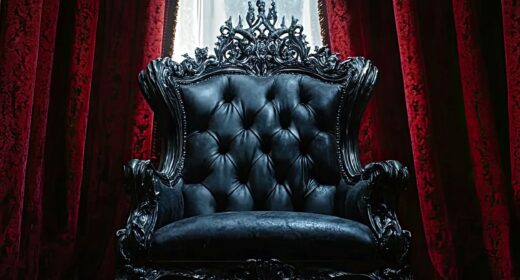In the vast cosmos of cinematic hilarity, “Spaceballs” emerges as a timeless interstellar spoof, navigating the galaxies of parody with a comical finesse that leaves audiences in stitches.
Led by the irrepressible Bon Jovi and graced by the late, great John Candy, this cosmic odyssey becomes a multigenerational experience, seamlessly blending humor, legal acrobatics, and unexpected delights.
The iconic scene unfolds with the unmistakable anthems of Bon Jovi echoing through parody-laden galaxies as the Millennium Falcon-ish spaceship soars through space. Dark Helmet, the comically nefarious antagonist, hilariously busts a move to “Livin’ on a Prayer,” and Princess Vespa’s iconic headphone buns add a quirky visual melody to the interstellar spectacle.
But the surprises in this cosmic comedy don’t end there. Enter the Juicy Fruit Twins, a delightful surprise in the vastness of space, adding an extra layer of humor to the interstellar escapade. Alongside them, the notorious Pizza the Hutt, a mob boss made of melted cheese and pepperoni, takes a slice out of our collective funny bone.
Amidst the cosmic hilarity, the late, great John Candy graces the screen as Barf, the half-man, half-dog sidekick, leaving an indelible mark with his lovable portrayal. And who could forget the delectable Lone Star Raspberry, a whimsical flavor that transcends galaxies and tickles the taste buds with the cosmic charm of Mel Brooks’ imagination?
Within the cosmic realm of “Spaceballs,” the art of parody takes center stage, becoming a guiding force that propels the film into the orbit of comedic brilliance. Mel Brooks, the mastermind behind this interstellar spoof, deftly navigates the fine line of parody, turning familiar elements from iconic franchises, particularly “Star Wars,” into a canvas for laughter.
Parody, in the context of “Spaceballs,” involves a clever and humorous imitation of well-known characters, themes, and tropes. This comedic technique allows the film to playfully riff on the sci-fi genre, creating a space where audiences can both revel in the nostalgia of classic space operas and enjoy a fresh, comedic perspective.
Now, let’s delve into the legal galaxy of licensing. “Spaceballs” undertakes a delicate dance in the licensing arena, where the gravitational pull of intellectual property laws is a formidable force. The film manages to cleverly parody iconic elements from “Star Wars” without directly infringing on copyrights, trademarks, or other intellectual property rights.
Licensing, in the realm of parody, often involves obtaining permission or a license to use copyrighted material in a way that transforms or satirizes the original work. In the case of “Spaceballs,” the brilliance lies in the film’s ability to cleverly sidestep direct reproductions while maintaining a humorous and recognizable connection to the source material.
One intriguing aspect is the playful use of scent marks, epitomized by the “Perrier” scene in the movie. In a galaxy where intellectual property extends even to scent, “Spaceballs” slyly introduces a carbonated beverage with a scent trademark, spelling it as “Perr-i-air.” This clever play on words not only adds a humorous layer to the film but also satirizes the concept of scent trademarks in a way that’s ahead of its time.
In reality, scent trademarks represent a distinctive yet uncommon facet of intellectual property protection. This unconventional form involves registering a specific scent as a unique identifier for a particular product or brand. “Spaceballs” humorously tackles this concept, showcasing the film’s knack for satirizing diverse aspects of intellectual property, even those that might appear unconventional or esoteric.
The film doesn’t stop there, cleverly parodying the extensive merchandising associated with blockbuster movies. In the famous scene, Yogurt declares, “Spaceballs! The T-shirt, the Coloring Book, the Lunchbox, the Breakfast Cereal, the Flamethrower!” This satirical take on the merchandising frenzy mocks the commercialization of popular franchises.
Additionally, “Spaceballs” introduces the concept of “Ludicrous Speed,” a parody of the faster-than-light travel in traditional sci-fi. The film’s self-awareness, with characters breaking the fourth wall, adds another layer of satire, highlighting the artificiality of the cinematic experience.
The success of “Spaceballs” in navigating the legal complexities of parody, licensing, and even scent marks is a testament to Mel Brooks’ comedic genius. By transforming legal hurdles into opportunities for humor, the film not only elicits laughter but also prompts audiences to reflect on the intricacies of intellectual property in the entertainment industry.
In essence, “Spaceballs” becomes a cosmic playground where parody, licensing acrobatics, and scent mark satire converge to create a comedic masterpiece that transcends the boundaries of space and legal frameworks. As we journey through this interstellar spoof, we’re reminded that laughter, when intertwined with clever parody, has the power to transform even the most complex legal constellations into constellations of amusement.
Disclaimer: In the vast expanse of legal galaxies, it’s important to note that “Spaceballs” and its comically ingenious maneuvers in parody, licensing acrobatics, and scent mark satire are purely the fantastical brainchild of Mel Brooks. No Schwartz-wielding lawyers or agents were harmed in the making of this interstellar spoof. Any resemblance to real intellectual property battles, ludicrous or otherwise, is purely coincidental. So, buckle up your seatbelt, make sure your radar is jammed, and remember, the Bad Year Blimp is just a comical blip in the cosmic journey of laughs. May the parody be with you!




